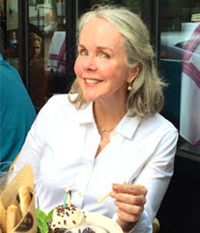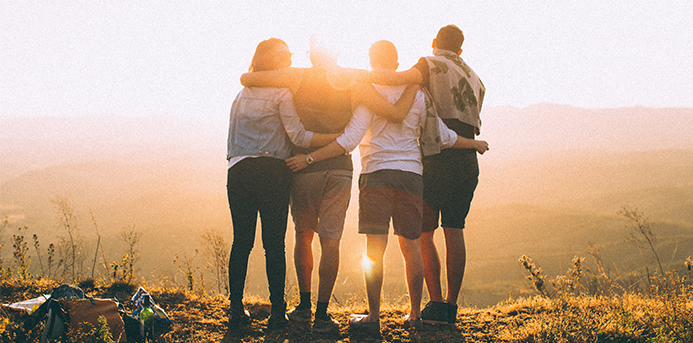The following piece was submitted by a reader and does not represent the views of Make It Better.
As a psychotherapist, I consider empathy to be an important tool for healing. In clinical supervision I often tell the true story of a woman in New York City, 1985. Briget Gerney, after leaving Bloomingdale’s, was pinned beneath a 35-ton crane on Third Avenue in Manhattan. The officer directing traffic to the 59th Street Bridge left his post and ran to Mrs. Gerney. After it was established that nothing could be done to lift the crane until another crane could be brought through midtown traffic from the west side, the officer crawled under the crane and stayed with her for five long hours. They spoke about each other’s families and she gave him instructions in the event she fainted or died. She was successfully rescued but both of her legs required amputation below the knees. The following day the news headline quoted her words to the officer: “Thank you for being with me.”
When you can imagine and accept another person’s pain or shame, you affirm their sense of being human as well as your own. Developing empathy yields beneficial effects for individuals and society.
Our increasingly anti-social cultural norm and self-serving behavior reveals a diminishing personal responsibility for our actions. We have become desensitized to true pathos (“We really don’t care.” “Womp, womp.”) And yet, can anyone who saw the photo of a baby lying dead, washed ashore in Italy last year forget the visceral horror it evokes? We must wonder, “Where is the empathy?” “What is empathy?”
“Heroes” of modern life, particularly in light of the opioid crisis, show how opioids, associated with “HEROin,” enable the user to make death-defying behavior possible. Contact football players continue to play with grievous injuries because they have been medicated not to feel them, not to interrupt the profit schedule.
This differs from earlier heroes like Teddy Roosevelt who, after losing both his mother and his wife within hours of each other, used his pain and grief to feel into the universal need for consolation, which inspired his creation of the National Park System. Franklin Roosevelt, too, while bathing in hot springs for his debilitating polio, felt compassion for others suffering like him. Historians agree that this informed his creation of the Social Security programs; he was known to say, “There but for the grace of God go I.”
When our culture sanctions an avoidance of pain, how can we hope to find any form of balance in outcomes of the national debates about income inequality, entitlements, tax obligations, and other collective struggles? How can we dare self-examination?
There are flickers of what William Auden called “affirming light” amidst this cultural gloom. We can see the capacity for concern, in new developments including the Center for Mind Body Medicine, where the value of pain is developed.
The Nora Project at Libertyville school D70 integrates children with autism into classes of students without autism, quietly weaving in to the curriculum an acceptance of otherness.
The Parkland phenomenon has called out any delusions we may have if we believe ourselves to be innocent bystanders in the public health crisis of gun violence.
Euripedes said it best — “When a good man is hurt, all who would be called good must suffer with him.”
 Ms. Shaw is a licensed clinical social worker. She has maintained a private practice of psychotherapy and Jungian analysis for 30 years, served on the Board of the CG Jung Institute of Chicago from 1992-1998, teaches at CG Jung Center in Evanston, and provides clinical supervision.
Ms. Shaw is a licensed clinical social worker. She has maintained a private practice of psychotherapy and Jungian analysis for 30 years, served on the Board of the CG Jung Institute of Chicago from 1992-1998, teaches at CG Jung Center in Evanston, and provides clinical supervision.
Having consulted for Fortune 100 companies, Ms. Shaw worked in organizational development, team building, and transitioning technology.
Having served in the Veteran’s Health Organization (VHO), the Behavioral Health Lab, Ms. Shaw helped veterans work through problems including bereavement, post-traumatic stress disorders, and mood and anxiety disorders.
Outward Bound Schools, Hurricane Island, Maine; Ms. Shaw worked as an instructor using experiential learning methods at a wilderness program.

